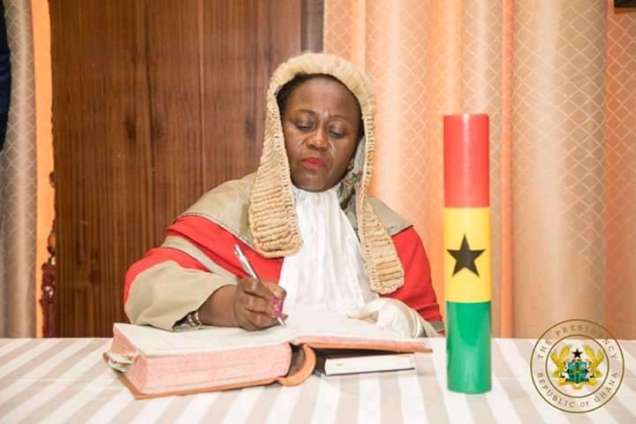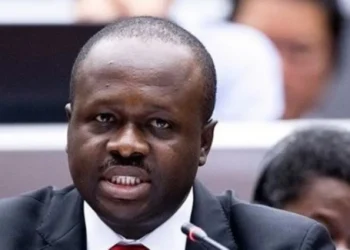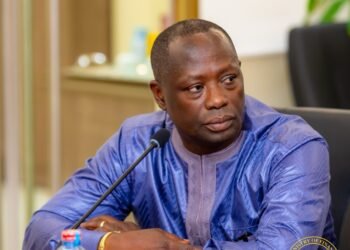Suspended Chief Justice of Ghana, Gertrude Araba Torkornoo, has raised serious concerns about the legality of the proceedings initiated to remove her from office, describing them as a fundamental threat to judicial independence and the democratic foundations of the country.
At a press conference, the suspended Chief Justice Torkornoo stated that the ongoing removal process against her was being carried out in a way that disregards established judicial procedures and undermines the rule of law.
She emphasized that the process, though targeting her individually, carries far-reaching consequences for the judiciary and the broader governance framework of Ghana.
“The process alone affects far beyond me as a person. This process will affect how all superior court justices and future chief justices may be removed from office. It also affects commissioners and heads of independent constitutional bodies set up to protect the freedom and justice of citizens as guaranteed under the 1992 Constitution.”
Gertrude Araba Torkornoo
Justice Torkornoo referenced Article 146 of Ghana’s 1992 Constitution, which outlines specific grounds and a structured process for the removal of justices and other key public officers.
According to her, the constitution requires that such removals be based solely on proven “inability to perform the functions of office.”
The intention, she stressed, was to insulate these officials from “unjustified punishments or reprisals from influential people or members of the executive or legislature.”
Denial of Public Hearing
Justice Torkornoo explained that she had asked the Supreme Court to make the proceedings public in the interest of transparency, emphasizing that the confidentiality surrounding the removal of justices was never intended by the Constitution to conceal any agenda.

She cautioned that maintaining such secrecy could weaken judicial independence and diminish public confidence in the judiciary.
“I realized that in my case, the public should be made aware of the allegations in the petition. None of the allegations made borders even remotely on matters of national interest or public order.”
Gertrude Araba Torkornoo
One example she gave was an allegation that she failed to report a $14,000 travel imprest. She clarified: “I could only spend $4,400, and I returned $9,600 two days after I returned to Ghana.”
She expressed frustration that her request for a public hearing was denied and that a supplementary affidavit she filed—raising concerns about human rights violations during the proceedings—was struck out by the court at the request of the Attorney General.
“Violations” Escalate
Furthermore, Justice Torkornoo raised serious concerns about what she characterized as systemic violations of her rights during the ongoing proceedings.
She cited, among other issues, the committee’s initial refusal to acknowledge her lawyer in her absence, which she argued breached the principles of natural justice.
She also claimed the committee did not clearly outline the charges against her, making it difficult for her to prepare an adequate defense.
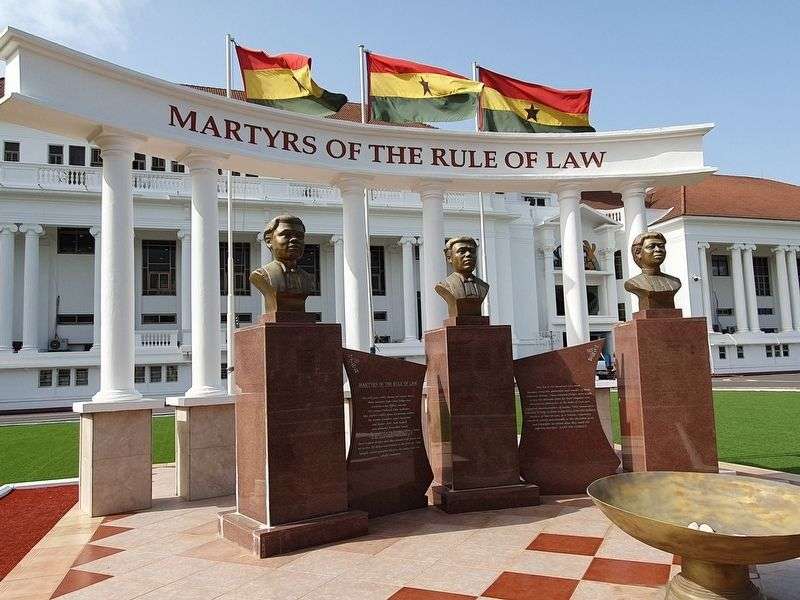
According to her, the committee has allowed two petitioners to avoid testifying or presenting their case.
She added that she has been barred from entering the hearing venue with family members and subjected to physical searches, which she described as a “violation of protocols and courtesies extended to any Chief Justice.”
Justice Torkornoo also objected to the venue of the hearings, a high-security facility on Castle Drive in Osu, which she claimed was historically linked to the “planning of the murder of judges on June 30, 1981.”
She said the location, combined with the secrecy of the process, appeared designed to “intimidate me and to prevent any citizen of Ghana from knowing how the proceedings are being conducted.”
She lamented that the committee had not provided her with the official complaints, petition documents, or the President’s prima facie determination. “How does anyone defend themselves without a copy of the complaints that they have been summoned to come and answer to?”
The refusal, she claimed, violated established legal norms and rendered her defense essentially blind.
Court Rules Replaced With Litigation Approach
Justice Torkornoo revealed that although the Constitution requires the committee to operate as a fact-finding inquiry, it had opted instead to treat the hearings like a civil trial.
She stated that on May 15, the committee decided “without listening to my lawyer that it would conduct the hearing not as an inquiry but as litigation,” thereby applying civil court rules instead of those designed for investigative bodies.
She noted that this shift allowed petitioners to call public officials as witnesses without being required to testify themselves.
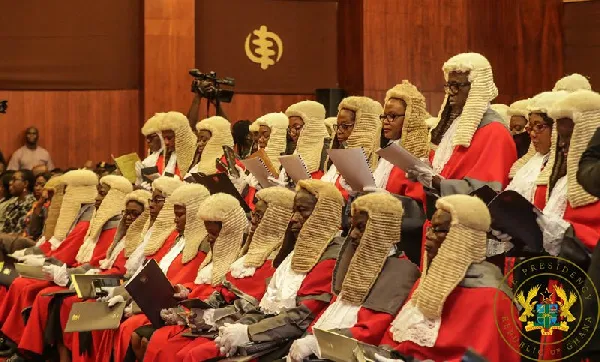
This, she argued, places an undue burden on her legal team: “My lawyers are left to guess which allegations in the petitions are supposed to be the subject matter of the testimonies.”
Justice Torkornoo characterized the proceedings as entirely lacking adherence to established principles of fair hearing. She indicated that her legal team has filed an application for judicial review at the High Court, seeking to nullify the process altogether.
The suspended Chief Justice cautioned that allowing such actions to go unchecked could set a troubling precedent, threatening both judicial independence and the constitutional foundations of Ghana’s democratic institutions.
READ ALSO: Trump Meets With Zelenskyy On NATO Summit Sidelines

